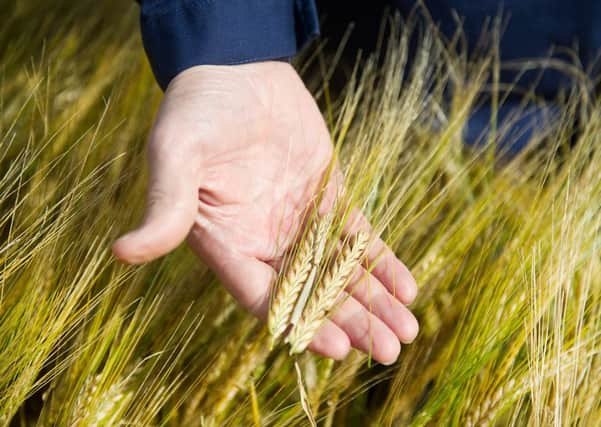NFU Scotland launches campaign to save '˜key' herbicide
This article contains affiliate links. We may earn a small commission on items purchased through this article, but that does not affect our editorial judgement.


With a decision on whether or not to re-authorise the herbicide due to be taken by the EU later this year, the union said it was calling on Scottish farmers to help get the message out on how important the product was – especially in climates such as Scotland’s – and why it must be re-authorised for a full 15 years, including for pre-harvest use.
• READ MORE: NFU Scotland welcomes glyphosate herbicide all-clear
Advertisement
Hide AdAdvertisement
Hide AdThe union said that there was no well-reasoned scientific argument to hold back its full re-authorisation.
“However, the decision-making process regarding the use of glyphosate has become highly politicised,” said union president Andrew McCornick.
“Glyphosate has received a clean bill of health from the European Food Safety Authority, European Chemicals Agency, World Health Organisation, and the Food & Agriculture Organisation of the United Nations.
“This scientific consensus means that if regulation of plant protection products in the EU is to have any credibility at all, glyphosate must now be re-authorised for a further 15 years – including for pre-harvest use.”
McCornick said that, as glyphosate had been given “as much of a clean bill of health as any plant protection product is likely to get”, it was now crucial that the general public were made aware of the fundamental importance of the product to farmers across Scotland.
McCornick said that the union had written to all Scottish MEPs to encourage them to support the re-authorisation of glyphosate, but stressed that it would be “invaluable” if the MEPs also heard directly from farmers who use the product about what it means for them.
“That message could be delivered even more powerfully if farmers were able to get MEPs on farm to discuss the issue,” he said. “I encourage all Scottish farmers who want to see glyphosate remain in their toolbox to contact their MEP as soon as possible.”
Advertisement
Hide AdAdvertisement
Hide AdHe said that social media would also play a key roel in influencing opinions, adding that the union would be making its case using the hashtag #GlyphosateIsVital and asked others to join in.
“Let your MEPs and the European Commission know how important glyphosate is for you, and don’t assume someone else will be do doing it so you need not bother. As a farming community we need to speak up for glyphosate, so please do your bit.”
• In 2016, glyphosate was re-authorised by EU authorities for 18 months rather than the 15 years which the UK farming unions, including NFU Scotland, and wider agricultural industry had been calling for, pending further scientific evidence.
In the run up to the re-authroisation process, the European Food Safety Authority (EFSA) and World Health Organisation (WHO) have both said that glyphosate was unlikely to cause cancer.
Whilst this conclusion was not shared in a report by the International Agency for Research on Cancer (IARC), the chemical’s safety was recently upheld by a major report from the European Chemical Agency (ECHA).
However, with a number of trials reputedly showing different results, it is unlikely that any other plant protection product in modern agriculture has attracted as much scrutiny as glyphosate.
First released by manufacturers Monsanto in the mid 1970s and sold under the trade name “Roundup”, the product has been used by gardeners and farmers for decades. There was a step change in its use around the globe following the release of crops genetically modified to be resistant to the spray.
However, in Scotland and other inherently damp, maritime climates, it has been the product’s ability to “ripen” conventional crops prior to harvest which has seen a major increase in its usage, increasingly so after the chemical came off patent in 2000, allowing other companies to manufacture their own versions.
Getting down to grassroots
Advertisement
Hide AdAdvertisement
Hide AdThe NFU Scotland campaign to retain full EU approval for the weedkiller, glyphosate, was launched at McGregor’s Farms at Coldstream where Colin McGregor said that, like the vast majority of arable and livestock farmers across Scotland, he relied heavily on the product to control weeds, manage harvests, and reduce grain drying costs.
“My business is founded on attention to detail and doing things right. Alongside doing my part for the environment and taking care of my soils, I need to be able to grow and harvest my crops in the best condition,” he said.